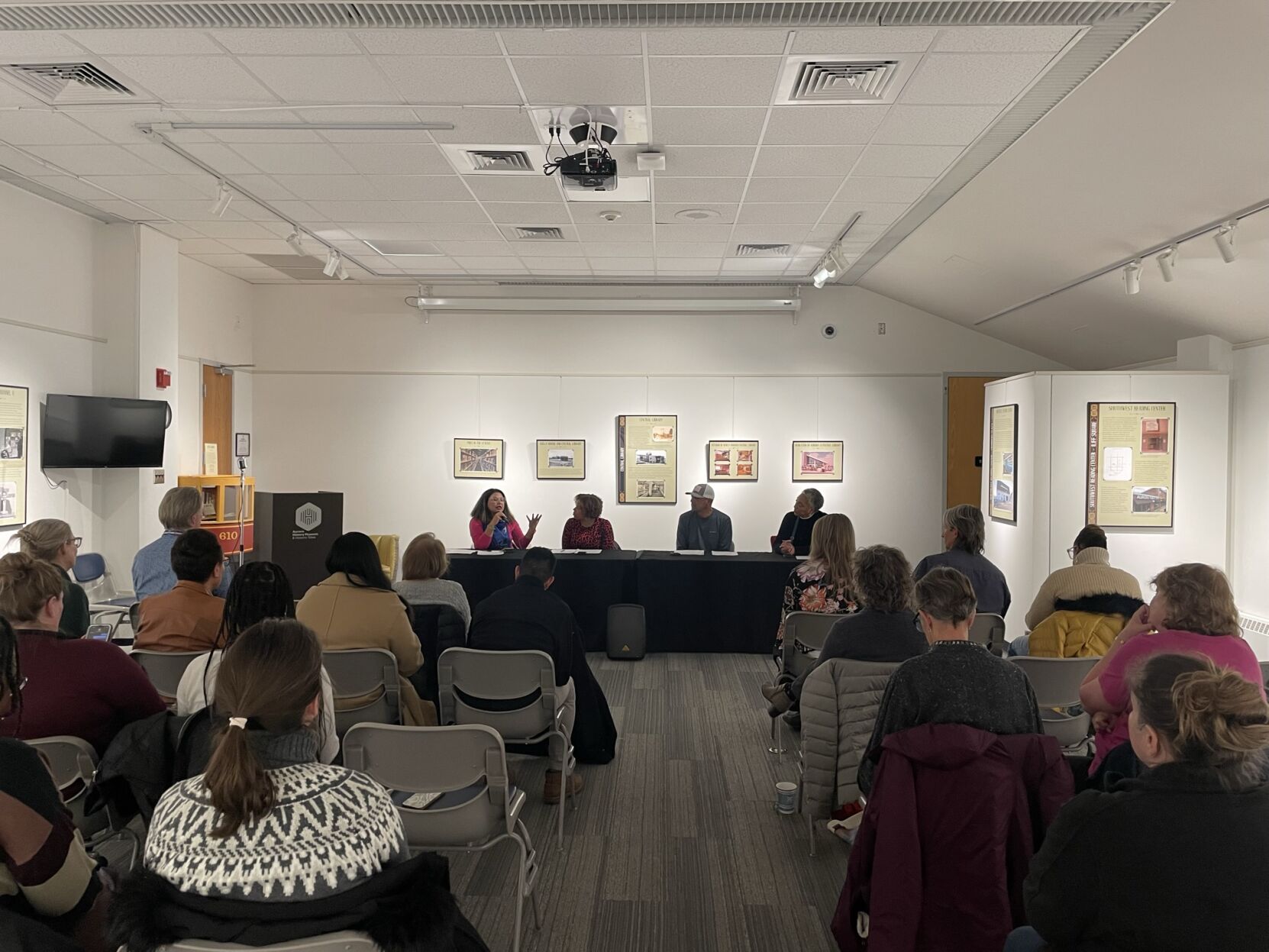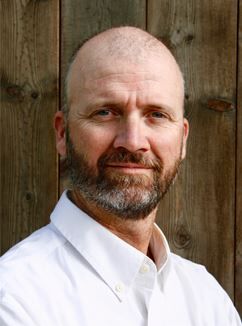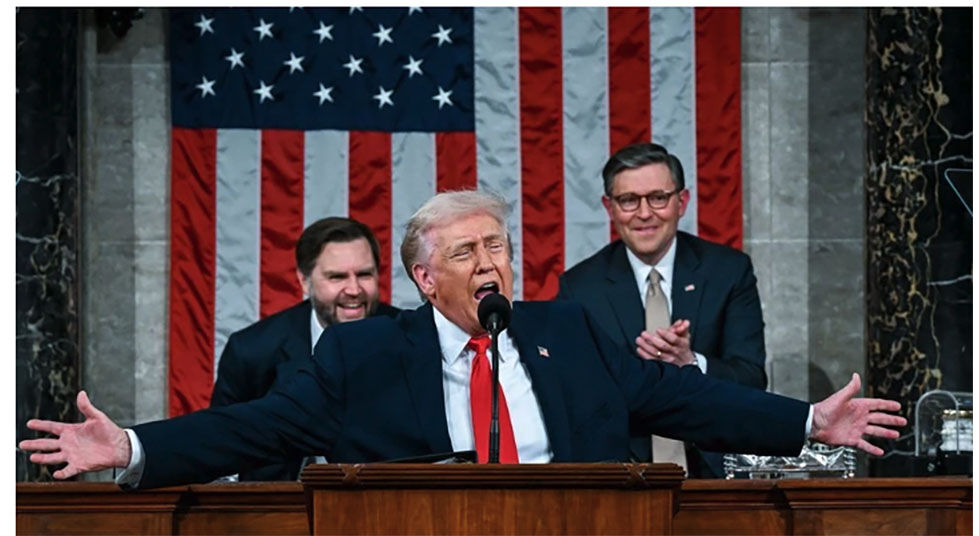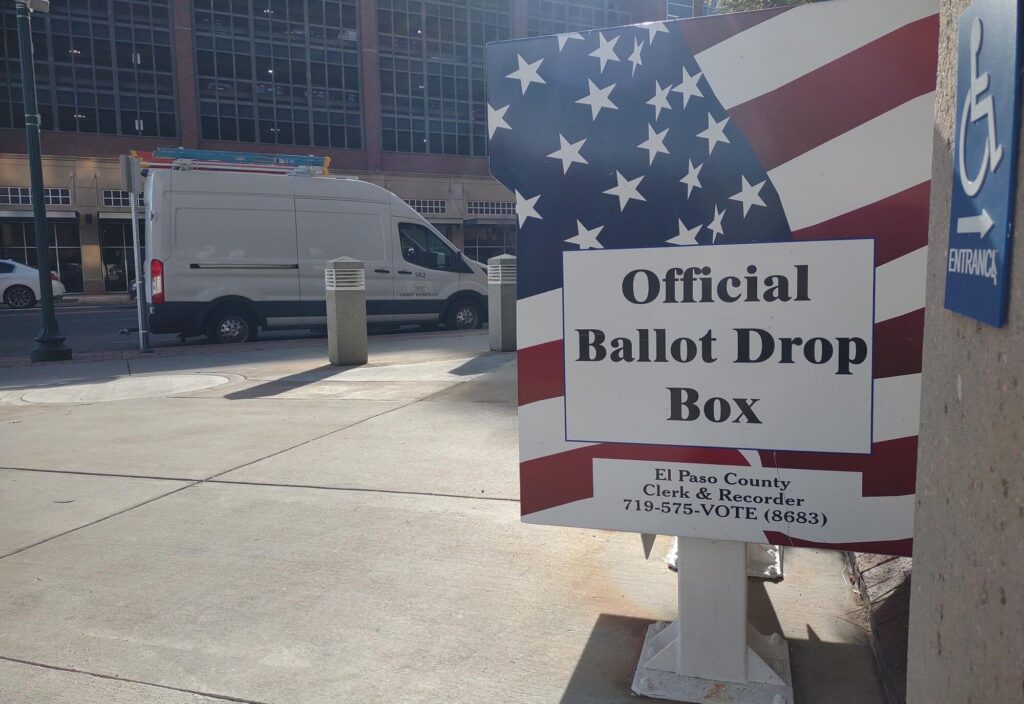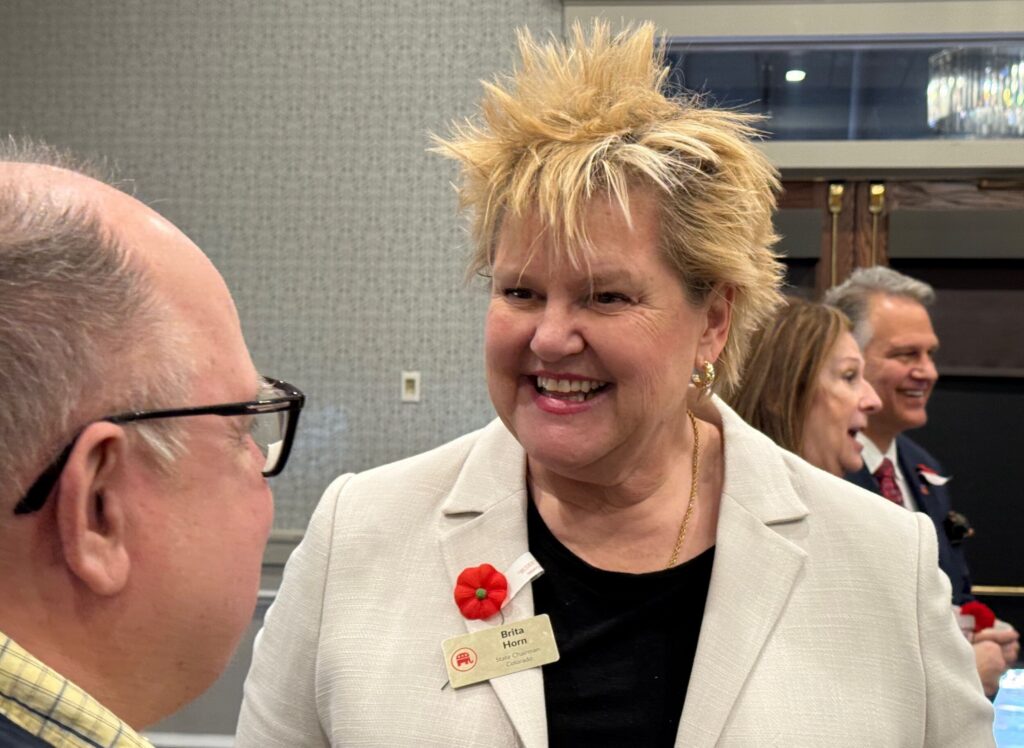Aurora panelists reflect on history, legacy of MLK in Colorado

Famed civil rights leader Martin Luther King, Jr. visited the Denver area at least six times in his life, according to Aurora History Museum curator Keith Outcelt, and his visits have left a enduring impression on many people who live in the area.
Outcelt, who welcomed a room full of Denver-area residents to a discussion panel at the Aurora History Museum Wednesday, said King left a lasting legacy on the Denver area, bringing with him on his visits lots of contention and education often ignored in conversations about the area’s history.
King was assassinated on April 4, 1968 in Memphis, Tenn.
While Outcelt found references to six visits from King to the Denver area – in 1956, 1959, 1962 twice, 1964 and 1967 – he said African American history often gets “ignored” or “buried,” so King may have visited on other unrecorded occasions, he said.
King’s first recorded visit was in 1956, just as the Montgomery Bus Boycott was nearing its end, Outcelt said. King spoke at New Hope Baptist Church, a traditionally Black church right on the edge of Park Hill. His visit came right as the desegregation of Park Hill started to be an issue in the Denver area.
While it’s “tempting to think that King actually saw this coming,” Outcelt said, King actually visited for a National Baptist Convention at the church, where he gave a sermon. On that visit, he gave sermons at a few other churches, as well.
King next came to the Denver area in October 1959, right after Colorado passed the Fair Housing Act, which legally ended “redlining” in the city, for a Southern Christian Leadership Conference fundraiser, Outcelt said.
The fundraiser was held at Manual High School – one of the first high schools in Denver to accept African American students.
“This ’59 visit seems to have been pretty brief, focused on fundraising and also connecting the nation as a whole to the civil rights struggle, which too often was described at that time as a southern problem,” Outcelt said.
King’s third visit was in April of 1962, right before Easter, to give a series of sermons at several churches. He came again in June of 1962 for another National Baptist Convention, at which he was the keynote speaker.
By his visit in January 1964, King had really become a national figure, having just delivered his “I Have a Dream” speech and named Time’s Man of the Year, Outcelt said.
On the plane to Denver for that visit, there was a bomb threat due to King’s presence, Outcelt said.
The City and County of Denver invited him in 1964 as a consultant due to his expertise on race relations, but the move received backlash by people who wondered whether it was appropriate for the city to use public funds to consult with a preacher, Outcelt said.
King spoke to a crowd of about 200 people at Denver University and gave a sermon at Montview Presbyterian Church, which is in Park Hill, as the neighborhood was in the middle of integrating.
On that visit, he also met with area rabbis to discuss shared concerns about discrimination and spoke at Grace Presbyterian Church in Littleton for their council of human relations.
“Grace Presbyterian is very much a White church at this time and Littleton is very much a White city,” Outcelt said, adding that there were only eight African American families in the city at the time. “Council invited King because because they wanted to discuss how Littleton can become more welcoming for African American citizens in light of the fact that redlining is not a part of the landscape anymore.”
The last recorded visit King made to the Denver area was in May of 1967, about a year before his assassination.
He was invited that year by University of Colorado Boulder students to speak to about 2,500 people about the future of integration.
This visit saw the most contention of all of his visits, Outcelt said, with students protesting and setting off cherry bombs outside the building with a sign saying “rights for whites.” Crosses were burned in the Greek life neighborhood on The Hill and police were mobilized to deal with protests.
Later, police said the protester group was “blowing off steam” and the protests were “nothing more than spring fever” about the event.
He gave this speech shortly after coming out against the Vietnam War publicly and even said in the speech “I could not fight in Vietnam, I could not do it in good conscience.”
“I think King’s visits present a fuller version of his legacy than we often discuss,” Outcelt said. “Beyond what we think of as civil rights issues, King was certainly discussing international relations when he was in Denver. He’s discussing theory supporting Black-owned businesses, he’s talking about education and, ultimately, he’s acting as a preacher in a lot of those cases.”
While there’s often a myth that King was beloved by most Americans, his visits to Denver, accompanied by bomb threats and protests, showed that wasn’t true when he was alive.
King’s son, Martin Luther King III, visited Denver in 2008 for MLK Day and said he wondered if America had even understood his father’s pleas for acceptance and non-violence, Outcelt said. King III said he was happy to observe his father’s birth but wasn’t sure they could celebrate it yet.
Panelist Terri Gentry, a Black American West Museum board member and History Colorado’s engagement manager for Black communities, feels connected to King’s legacy in Denver.
Gentry’s uncle was a journalist for the Denver Post when King visited and later became a state representative, senator and then the first Black lieutenant governor, and he was closely connected to King.
“Both sides of our family were into politics and civil rights and making our world a better place,” Gentry said. “As a kid, listening to some of the conversations that our family had about Dr. King and then to watch the extreme pain they experienced when he was murdered and the things they talked to us about to make sure that we understood the full effect of what was happening and what can we do with our lives to carry forward what he started, that was a big deal in our family.”
Being connected to King in such a close way, and knowing so many other people in her community who were and continue to be part of King’s legacy in activism, leaves Gentry feeling “so honored and so humbled,” she said.
Panelist Mateos Alvarez, the Aurora Economic Opportunity Coalition and Dayton Day Labor Center executive director, said his father – who was orphaned and led a tough life during the Great Depression – was raised by the Black community.
Alvarez grew up hearing stories about how the Black community had raised his father and, when he got older and started trying to find his identity, he realized there wasn’t a lot of literature about Latino figures. As he read more about the civil rights movement, he was moved by his connection to it.
“It shaped my vision of the world and got me into wanting to do what I do today, which is working with our most stressed communities, our new arrivals, communities of color and people in general to solve the issues that face us in these very tough times,” Alvarez said. “King had a big impact in terms of my vision of the world, so his whole story I feel connected to.”
Panelist Binisha Shrestha, who works for the CU Anschutz Office of Diversity and Inclusion and is a member of Aurora Immigrants and Refugees Commission and Aurora Sister City International, grew up in Nepal, having never heard of King until high school.
King was greatly inspired by Mahatma Gandhi, who Shrestha read about in school.
While she was growing up, Nepal was in a civil war that left its government in a state of emergency. Shrestha recalls not being allowed to go out after dark and the stress of always wanting to know where her loved ones were to make sure they were safe, she said.
“Every day there was news of people getting killed, robbed, schools being dismantled,” Shrestha said. “I could figure out why King was so much for non-violence, so much for the basic civil rights … I can exactly relate on what we went through as a child.”
King’s message still resonates today, Alvarez said, but some of it is lost in the lack of conversations like the one held in-person on Wednesday, he said.
“King’s message and ‘I have a dream’ still resonates with people all over the world and I know that because I talk to a lot of migrants from other parts of the world … his message is still very strong and resonates in everything we’re doing in our organization,” he said. “But we do less of what we’re doing (at the panel discussion), sitting down, technology turned off, and having a conversation, because I think we can go deeper and I think that’s part of the issue,” he said.
Gentry still has a lot of hope for King’s message and legacy, she said, especially when she talks to young people.
“I will always have hope and I’m going to continue to talk to this generation of children so that they recognize who they are and recognize how they can contribute to make this world a better place and move that legacy forward,” Gentry said. “I’m not giving up on that.”
Shrestha feels King’s legacy in Aurora, where she has lived for a decade, in the city’s vibrant immigrant communities, she said.
Every community, neighbor or person has a different background, and the diversity of her community makes it easier to mingle and feel safe than she has experienced in less diverse communities, she said.
However, she also distinctly recalls getting to the United States and filling out immigration paperwork and seeing the “alien registration card” in her paperwork.
“Alien? Really?” Shrestha said.
Within her community, Gentry has seen a lot of promise for the future.
“Problems are still here, the divisiveness is still here … but people in our communities recognize that they’ve got to continue that work and continue to move (King’s) legacy forward,” Gentry said. “But in addition to his legacy, they’re continuing to move their own ancestor’s legacies forward.”
Gentry called King a “gigantic spirit” that continues to influence and make sure people know how to make tomorrow better.
